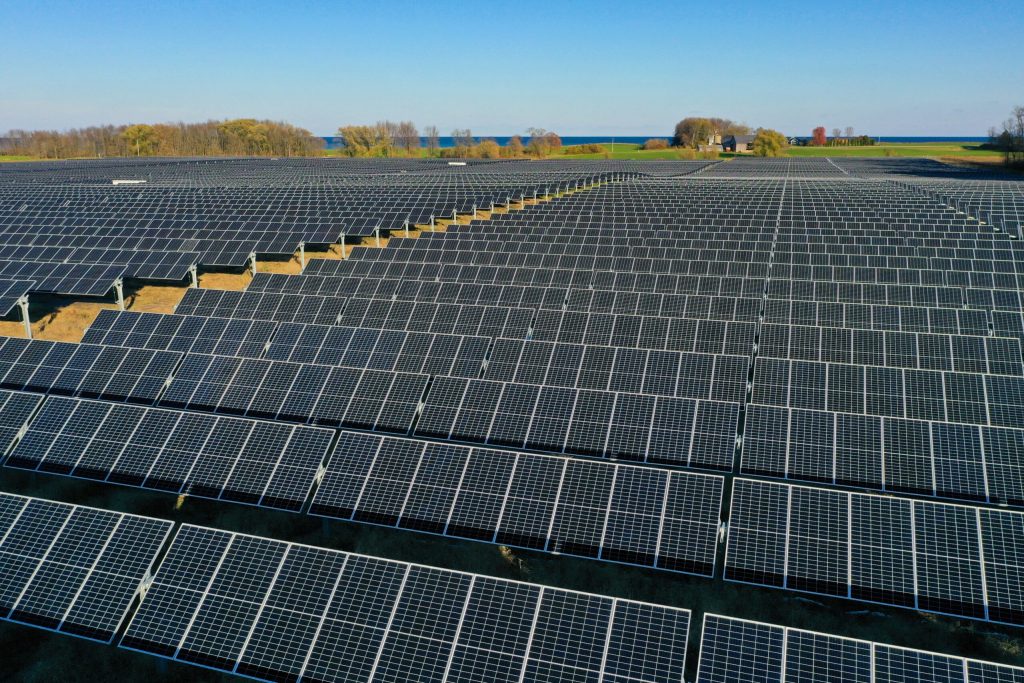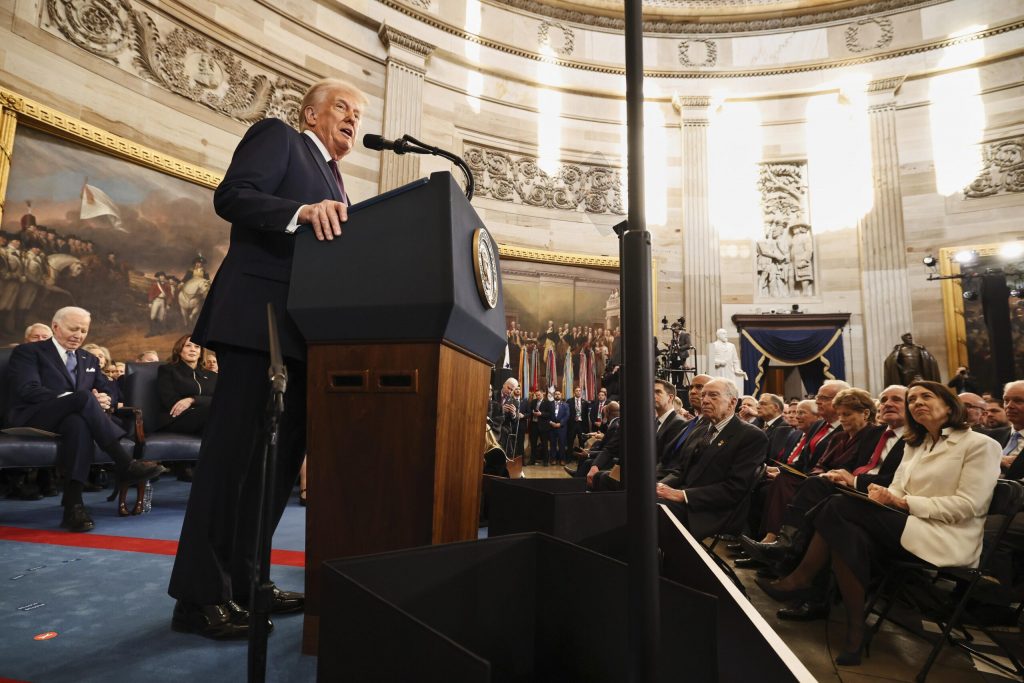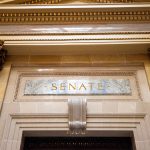How Will Trump Affect Wisconsin’s Climate and Clean Energy Programs?
His executive orders target federal programs that awarded billions to Wisconsin.

The Two Creeks solar plant in Manitowoc County went online in November of 2020. (Photo courtesy Wisconsin Public Service)
Federal funding and incentives for climate and clean energy projects in Wisconsin face an uncertain future after President Donald Trump signed a slate of executive orders to revoke policies, including the Inflation Reduction Act.
Following the hottest year on record, Trump once again ordered the nation’s withdrawal from the Paris climate agreement, which aims to ward off the worst impacts of global warming. He also ended former President Joe Biden’s 2021 order to ensure electric vehicles make up half of all vehicles sold in the nation by 2030. Trump also ordered agencies to pause and review funding spent under the Inflation Reduction Act, or IRA, and the Bipartisan Infrastructure Law.
Greg Nemet, energy expert and public affairs professor at the University of Wisconsin-Madison, said the president doesn’t decide what to do about spending that Congress has authorized.
“This could end up just being more of a power struggle between Congress and the president,” Nemet said. “But in the meantime, it does reduce some confidence in the funding and the expectations that would go to our state.”
Amy Barrilleaux, spokesperson for Clean Wisconsin, noted the executive orders won’t affect tax incentives or tax credits under the IRA unless Congress acts to repeal them.
“Tax credits for solar, the rebates that just rolled out for getting insulation in your home, programs like that are here for the time being for people to take advantage of,” Barrilleaux said. “What we don’t know is what’s going to happen to these other programs that have been going particularly to rural communities in Wisconsin.”
She said that includes the Rural Energy for America Program, or REAP. More than $66.7 million has been awarded under the program for more than 233 projects in Wisconsin, according to the U.S. Department of Agriculture. The New York Times reported $11 billion has yet to be spent under the landmark climate law, including for conservation programs for farmers and environmental justice grants for communities.

President Donald Trump speaks during the 60th Presidential Inauguration in the Rotunda of the U.S. Capitol in Washington, Monday, Jan. 20, 2025. (Chip Somodevilla/Pool Photo via AP)
Trump’s orders also include a pause on funds for electric vehicle charging stations under the National Electric Vehicle Infrastructure Formula Program, or NEVI. Barrilleaux noted Wisconsin just celebrated $23 million awarded to 53 sites that will host fast charging stations.“Trump can’t stop funding that’s already been doled out,” Barrilleaux said. But Wisconsin was set to receive a total of more than $78 million in federal funding for charging station infrastructure over a five-year span.
The state has opened another round of applications to install chargers at 13 more locations. Once work is under contract at those sites, state transportation officials have said Wisconsin had around $40 million left to award. In a statement, the Wisconsin Department of Transportation didn’t provide details on how much money the state has received so far.“WisDOT is aware of the Executive Order signed by President Trump related to Bipartisan Infrastructure Law programs,” the agency said. “WisDOT leadership will work with the U.S. Department of Transportation to determine any impacts to the department’s programs that result from the Executive Order.”The Inflation Reduction Act has helped prompt more than $5.4 billion of investment in climate and clean energy projects within Wisconsin or by state-based companies, according to Climate Power, which was co-founded by Biden’s senior climate adviser John Podesta. Wisconsin supports more than 73,000 workers in the clean energy sector, including roughly 2,500 jobs added since the passage of the IRA.
However, the law’s funds have flowed to Republican areas, and some GOP lawmakers in Congress pushed against its repeal in August. That doesn’t include members of Wisconsin’s Congressional delegation.
In a social media post, U.S. House Rep. Bryan Steil, R-Janesville, welcomed Trump back to office Monday.
“I look forward to working together to secure our border, lower costs for Wisconsin families, and unleash American energy,” Steil wrote.
Wisconsin Republicans in the U.S. House backed a resolution last year that denounced the Biden administration’s energy policies as anti-American, saying they’ve made it more difficult for families and businesses to make ends meet.
How do Trump’s executive orders affect climate and clean energy funding in Wisconsin? was originally published by Wisconsin Public Radio.
If you think stories like this are important, become a member of Urban Milwaukee and help support real, independent journalism. Plus you get some cool added benefits.





















